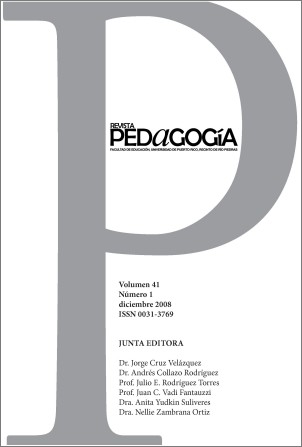Abstract
This pilot study explores a group of faculty members‘ perceptions regarding three main issues in academic dishonesty at a higher education institution in Puerto Rico: (a) frequency of and reasons for academic dishonesty behaviors in undergraduate students, (b) actions that professors take for preventing and dealing with these behaviors, and (c) the institutional factors that may foster academic dishonesty. Fourty-two professors of the University of Puerto Rico-Río Piedras voluntarily answered the trial version of the Cuestionario de Honestidad Académica-Facultad. For them, the three most frequent dishonest behaviors among the students are: (a) copying information without referencing or footnoting, (b) not showing at the exam hour without a reason, and (c) lying about a health problem when an exam or paper was due. Twenty seven professors had caught a student cheating on an exam or paper at least once, but only six reported the incident to the university authorities. The results reveal that this group of professors deals with a student‘s academic dishonesty behavior in an individual basis, and uses some measures for preventing cheating on the exams. In general, the findings of this pilot study are similar to previous research regarding faculty‘s perceptions and actions about students‘ academic dishonesty.
Cómo citar:
Medina-Díaz, M. del R., & Verdejo-Carrión, A. L. (2008). Perspectivas de la facultad acerca de la deshonestidad académica estudiantil en la Universidad de Puerto Rico, Recinto de Río Piedras. Pedagogía, 41(1), 149-172. Retrieved from https://revistas.upr.edu/index.php/educacion/article/view/16681
The contents published in the Puerto Rico Journal of Education is freely distributed under open access practices, in accordance with the Creative Commons license, Attribution-NonCommercial 4.0 International (CC BY-NC 4.0). Through these principles, the journal and its authors allow readers to access, reproduce and share articles in full text. Users should give credit to authors in a reasonable way without suggesting they have their support. Under no circumstances, readers may make use of the contents for commercial purposes. The authors retain copyright on their works.

